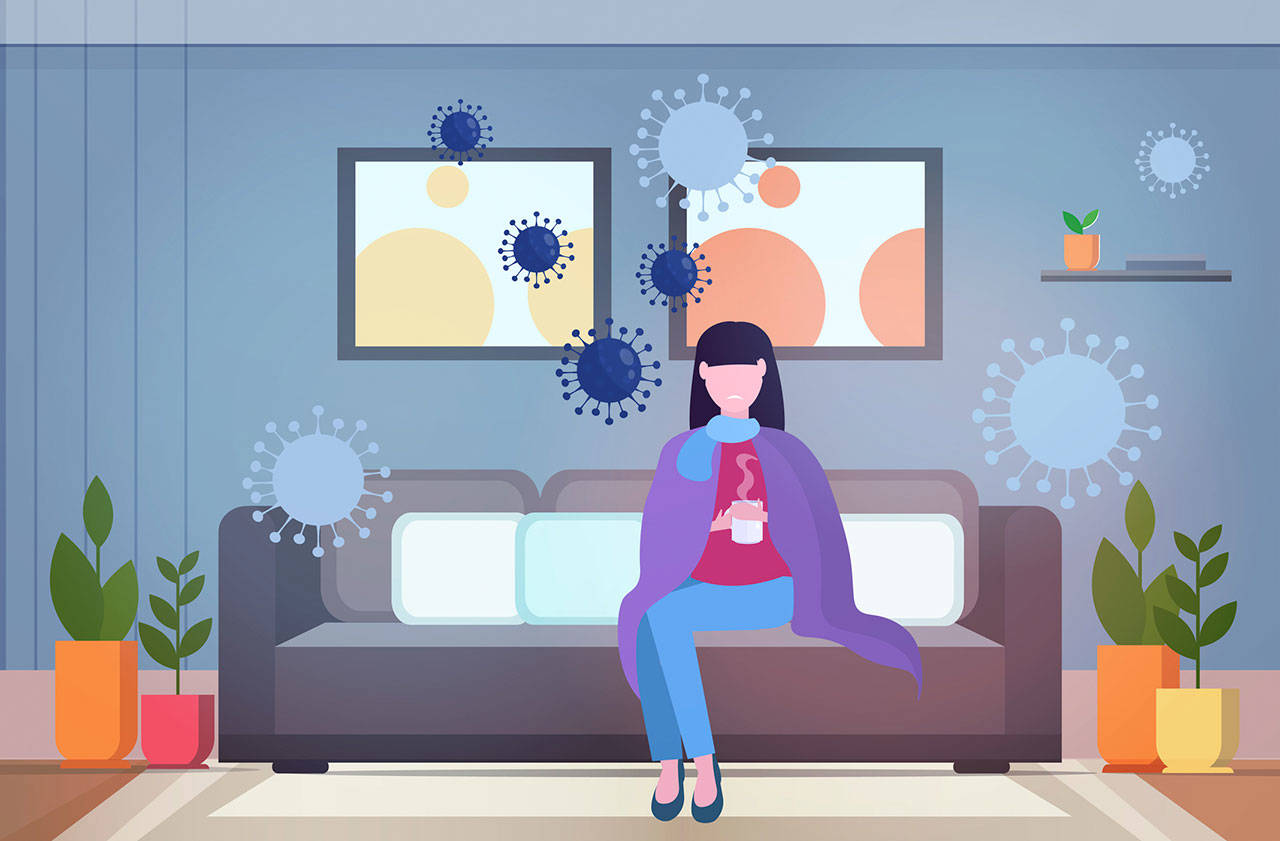By The Herald Editorial Board
The words “social distancing” might seem an oxymoron, two words that when used together appear to contradict the other. Can one be “social” and “distant”? If only comedian and satirist George Carlin were still around.
Yet, that is the term given to a range of hygiene and community practices that are now recommended for us as we confront the Covid-19 coronavirus outbreak nationwide and in our own communities. Those recommendations are necessary and must be taken seriously.
They range from the simple, such as frequent hand-washing, to more complex, such as the closure of schools, cancellation of events and the advice to work from home, all of which require a great deal more planning, preparation and adjustment of daily schedules to make work.
But these tasks and sacrifices are imperative if we are to better contain and slow the virus’ spread. For the young and healthy, the risks in contracting the disease are minimal; that isn’t the case for those over 65, those with compromised immune systems or with asthma, heart disease or diabetes. The slower the rate of community transmission of the coronavirus, the better able our hospitals and other medical health facilities will be able to treat those most in need. The trick is to keep the number of patients lower than the supply of hospital beds and ventilators.
Until more widespread testing is made available, we cannot know the full spread of the disease around us, so social distancing will be with us for the foreseeable future, which requires jarring and disruptive changes to our daily lives and sacrifices to comply with those changes.
Both the Centers for Disease Control and Prevention and Department of Health and Human Services offer more guidance on social-distancing practices: tinyurl.com/CDCcovid19prep; tinyurl.com/HHScovidMentalHealth.
Yet even as we practice social distancing, this will require that we not allow our fears and our drive to do what is called for to separate ourselves from our family, friends and community.
Scott Forslund, executive director of the Providence Institute for a Healthier Community and director of technology and innovation for Providence St. Joseph Health, writes about this for The Herald in today’s paper:
“While protecting ourselves from viral exposure is necessary, we must not inadvertently isolate ourselves further from family and community we need, and who need us. Social connectedness is a health priority, too. We’ve just got to be smart about how we do it.”
Even before the outbreak, Forslund writes, we already were facing impacts to personal satisfaction and emotional well-being in our lives, many of them caused or worsened by isolation throughout our communities.
Now as we face the outbreak and look to protect those most vulnerable, we need to make conscious choices to reach out — even if only in a figurative sense — throughout our community.
Here, fortunately, the things we can do are just as simple as washing our hands:
Those most at risk are being advised to stay in their homes and apartments. Particularly for the elderly among our family, friends and neighbors, make a call to see how they are doing and whether they need you to get something at the store or run an errand to the bank. Make arrangements to chat by phone, FaceTime or Skype to keep them company, especially if they are self-isolated to limit their exposure.
With schools closed for at least a month in throughout the state, some parents who can’t work from home may need assistance with childcare. Younger adult family members and friends could offer their help with child care.
For others, the closures and downturn in business will mean lost hours of work and layoffs. The demand will quickly grow at the region’s food banks at a time when donations are not typically high. Donations of nonperishable items are appreciated, but monetary donations allow more flexibility for those programs to purchase the items most in need.
Forslund also recommends an online platform at GiveWellLocal.org, which lists community needs and how to meet them.
Because of school and college closures and more people working from home, Bloodworks Northwest has had to cancel many of its mobile blood drives and is asking people to donate directly at its centers in Everett at 2703 Oakes Avenue and in Lynnwood at 19723 Highway 99, Suite F. Normally, The mobile blood drives provide about 60 percent of its blood supply, the organization said in a press release last week.
“We’re at a tipping point where children and adults experiencing trauma, those going through cancer treatment, and premature babies, among others, will not have blood available,” said Curt Bailey, chief executive and president of Bloodworks Northwest.
Blood donors must not have any symptoms of colds, flu or other infectious diseases. The donation process does not expose donors to risk of contracting coronavirus.
Navigating the rules of social distancing without unnecessarily isolating ourselves from each other and those in need in our community will take some thought and care.
But our compassion for each other has always spread more quickly than any virus.
Talk to us
> Give us your news tips.
> Send us a letter to the editor.
> More Herald contact information.

























